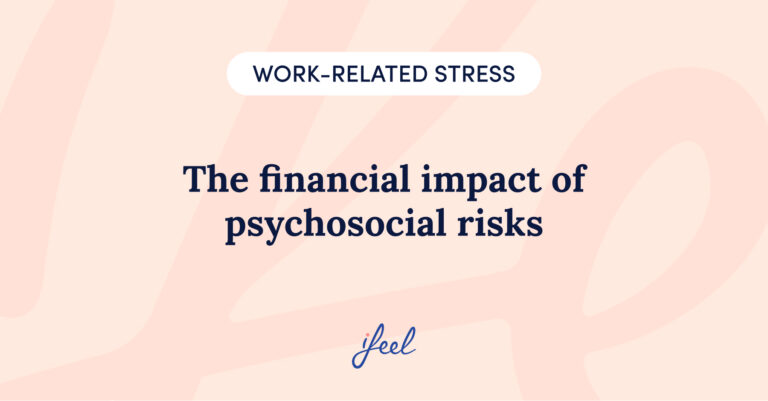Every May 1st, Worker’s Day, also known as International Workers’ Day, is celebrated to commemorate the labour movement and the workforce as an advocacy movement for various work-related causes.
Within our social context, a common aspect unites everyone: work. That’s why every May 1st, we should take a moment to reflect and celebrate the immense contribution that workers around the world make to our communities, economies, and individual lives. This day, more than just a simple holiday, is a tribute to the vital force that drives our progress and collective mental well-being.

Why is Worker’s Day important?
Worker’s Day has its roots in the 19th-century labour struggle for fair working conditions. Since then, this date has evolved into a day of recognition and solidarity for workers across all sectors and levels.
In this context, Worker’s Day can be analysed from several perspectives: halfway between protest, celebration, and claim, this day should be considered, above all, as a reminder of the importance of protecting labour rights, ensuring safety at the workplace, and promoting equal opportunities for everyone.
When we look at it from this perspective, International Workers’ Day is an opportunity to rethink our needs in the everyday professional environment beyond specific dates. Work is a realm where we spend many hours, interact with a multitude of people, and, ultimately, engage in our personal fulfillment. Therefore, as in any other area of our lives, we must take care of our mental well-being at work.
Mental well-being is a fundamental right
On this Worker’s Day, it’s important to take a moment to reflect on the work we perform and its impact on our lives. Whether we are on the production line, in an office, or anywhere else, each of us plays a vital role in the fabric of society.
However, we must remember that our mental well-being should be our priority. That is why more and more countries are subjecting labour relations to a legal framework that attempts to take into account certain minimum conditions so that work does not gradually destroy those who perform it.
Among these conditions is the promotion of the psychological well-being of employees. They must perceive that they work in an environment of psychological safety, with a healthy corporate culture, a culture of recognition, and a mature and welcoming work environment.
The reality is that creating a healthy work environment represents the path to being effective and generating true changes that can produce good company results. Therefore, it is important that, from time to time, we think and express what we lack and what we want to achieve for greater well-being. We must also detect and preserve what we have achieved because we know it works.
Ultimately, workers and companies have a mission regarding their mutual and sustainable growth: to use the most efficient means to achieve a new balance between serving the company’s interests and protecting people’s mental well-being.

Prevention as an efficient strategy for well-being
The latest Mental Well-being Trends Report in the workplace by ifeel demonstrated, using data from the last year, how preventing problems is more efficient than addressing them once they have appeared or worsened. Therefore, it is crucial that employees know that they should not push their capacities to their limits.
At work, it is not always about reaching more, arriving earlier, or getting there, no matter the cost. On the contrary, it is about arriving well. Here, establishing healthy boundaries becomes a fundamental tool for preserving mental well-being at work and achieving a balance between work and personal life.
And indeed, setting healthy boundaries and learning to manage workload efficiently are fundamental strategies for promoting mental well-being in the work environment. By clearly defining the boundaries between work and personal life, employees can protect their rest and recovery time, thus reducing the risk of burnout and chronic stress.
Moreover, a well-structured work organisation, which includes an equitable distribution of tasks, realistic deadlines, and adequate support, helps mitigate the overwhelming feeling and excessive pressure, allowing workers to face their responsibilities more effectively and without compromising their mental health.
Finally, the method to follow is a balanced dialogue between the responsibility each worker has over their own well-being and the responsibility that companies have in promoting it, especially through the prevention of the main psychosocial risk factors that deteriorate it. The framework of Worker’s Day represents the perfect opportunity to talk about it.

Mental well-being for companies
At ifeel, our commitment is to the health of workers, not only on Worker’s Day but all year round, because we understand that taking care of workers’ health is the only realistic way to take care of organisations’ health.
To support companies in this process, our team of expert workplace well-being psychologists has created a mental well-being solution for businesses that boosts talent retention, reduces presenteeism, and combats employee stress.
With our mental well-being solution, your company’s HR managers can receive personalised, data-driven advice on improving mental health at work. In addition, this solution offers employees a 360° mental well-being service structured at different levels according to their needs. Try our solution now to see how it could help you.
We hope you found this article on Worker’s Day interesting. If you would like more information about our mental well-being solution for companies, simply request it, and we will get in touch with your team as soon as possible.







